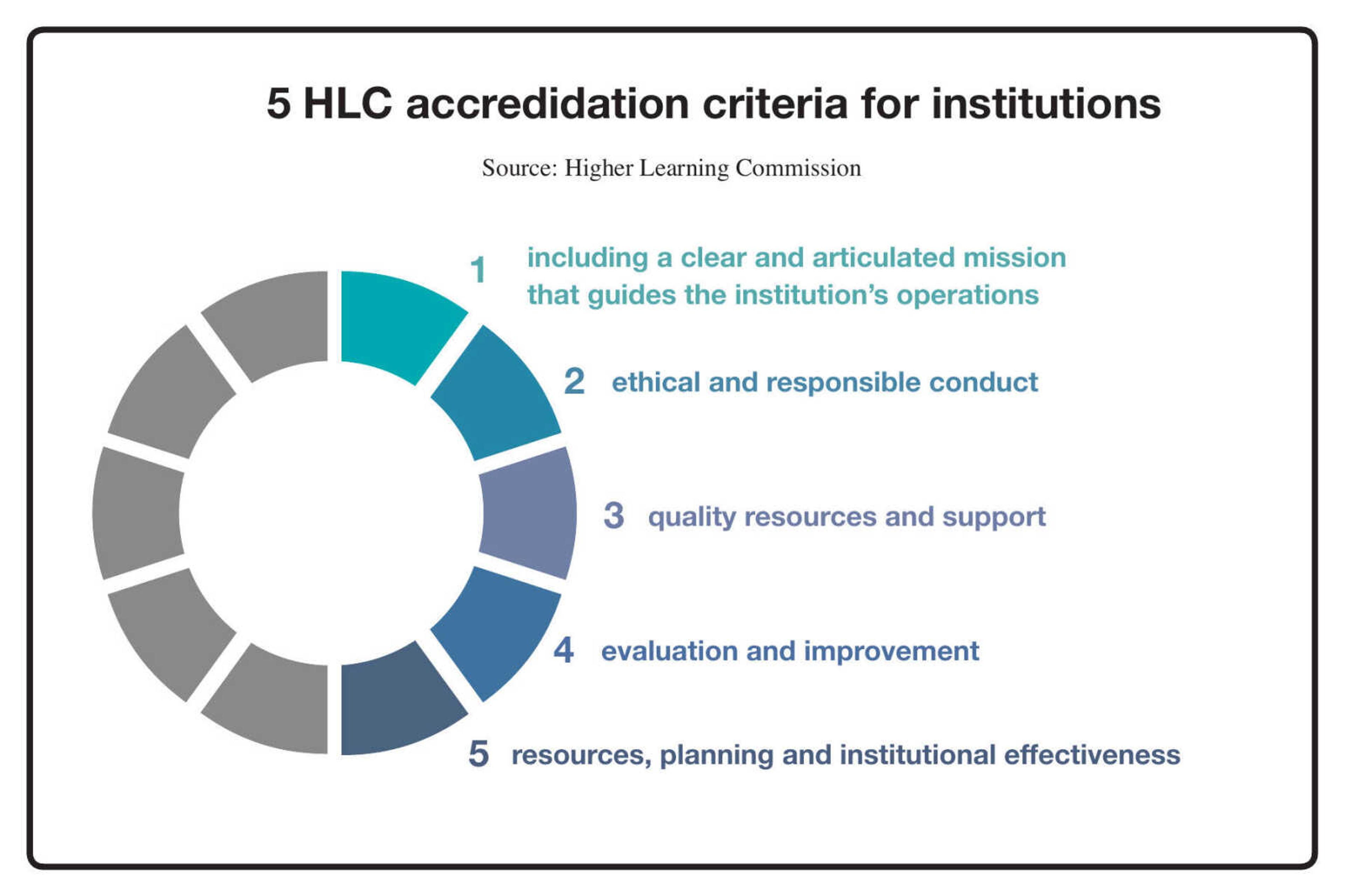The university is facing accreditation, the process by which a team of accreditors assures quality by verifying Southeast is meeting educational standards and engaging in continuous improvement.
Universities accredited by nationally-recognized organizations give students access to federal funding from the U.S. Department of Education. Southeast was first accredited in 1915 and was most recently accredited during the 2012-13 academic year.
Student Government Association President Matt Rolwing stressed the value of accreditation at Southeast.
“It’s important for us to get reaccredited — it’s something our university has been doing for decades,” Rolwing said. “Our accreditation makes our degree mean something. I’m excited to see what the Higher Learning Committee (HLC) will say, especially after the raving reviews they left our regional campuses last year.”
Members of the HLC accreditation team — Keegan Nichols, Marilyn Reineck and Bernard Rowan — facilitated open forum discussions Monday in both University Center Ballrooms.
The purpose of the forums was to give faculty, staff and students an opportunity to help accreditors better understand Southeast’s educational programs before forming an evaluation criteria report.
The first forum was facilitated by HLC members Nichols, vice president of student affairs at Arkansas Tech University, and Reineck, vice president for academic affairs at Concordia University at Saint Paul.
Nichols posed a question to those gathered: How do current policies and procedures at Southeast involve students, faculty and/or staff?
Kevin Dickson, Department of Management chairperson, emphasized the importance of the relationship between Faculty Senate and student government, which work together to review policy changes before they are implemented.
Diane Wood, Faculty Senate chair-elect and professor of biology, stressed the importance of communication between administration and faculty, especially when new policy is introduced.
“It’s one thing to be above everyone creating ideas. When the ‘worker bees’ have to implement them, there can be some frustration,” Wood said.
Wood suggested communication between university administration and professors is an area that needs work.
“The majority of the people on campus love the university, but communication is a weak area that we need to do better in,” Wood said.
Reineck furthered the discussion and asked forum participants about their level of involvement in institutional planning, such as budgeting and operational decisions.
Debbie Lee-Distefano, alternate faculty senator and professor of Spanish, said the budgeting process at Southeast is tied to strategic planning and is a collaborative effort between university personnel.
Several participants also noted educational departments at Southeast are allocating more funding to areas that assist in keeping retention rates and student success high. Southeast set an all-time high retention rate for full-time students at 75.3% according to a Sept. 20 University Communications report.
Although retention rates are up, the university is struggling to meet the needs of the student body. One of those needs is free on-campus counseling services.
As of Sept. 10, thirteen students were placed on the waitlist for counseling services.
“I believe it’s because the way society views mental health has changed. The stigma is lower to get support for mental health needs,” Janice Bunch, director of counseling and disability services, told the Arrow in early September.
Wood admitted the overbooked service is a problem for the university.
“Meeting the demands of our [large] student population is sometimes a struggle. Southeast hasn’t been able to provide counseling services for students as quickly as they need them. It is a problem,” Wood said.
The HLC has five criteria that must be met for an institution to be accredited, including a clear and articulated mission that guides the institution's operations; ethical and responsible conduct; quality resources and support; evaluation and improvement; and resources, planning, and institutional effectiveness.
The committee is required to initiate a review of its criteria every five years. A new set of criteria will go into effect on Sept. 1, 2020.
The HLC met on Tuesday, Sept. 24 for a third and final forum discussion. See our full coverage at southeastarrow.com.






